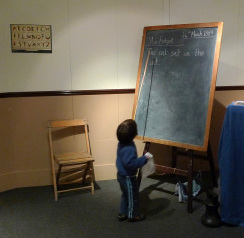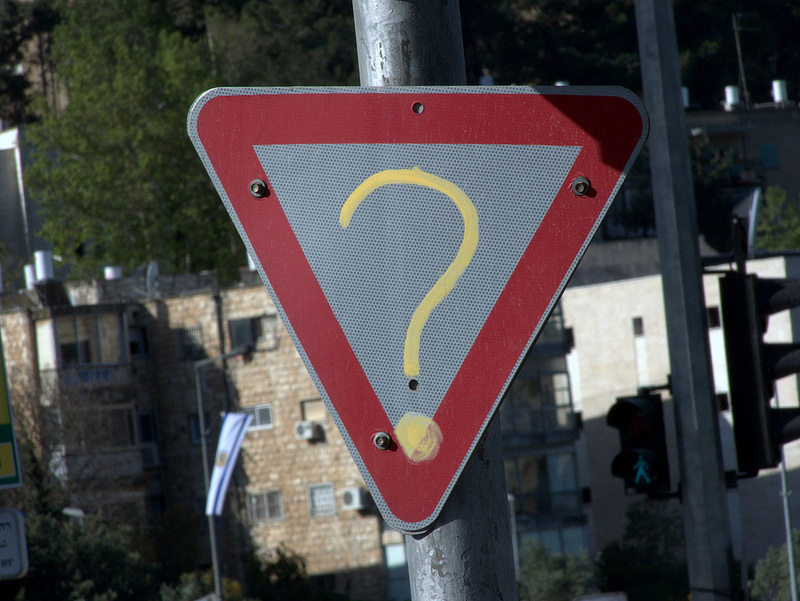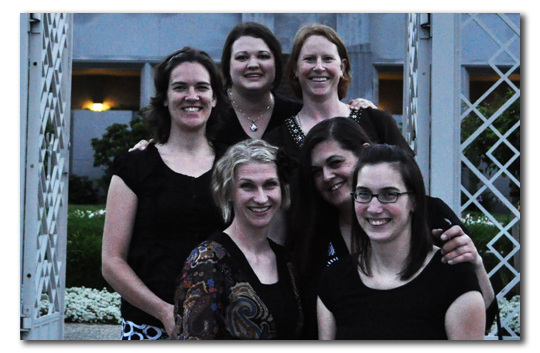

Proud of my accomplishments in teaching social justice and anti-discrimination, I blogged about it all here.
Throughout the weekend that followed, however, I began to second guess myself. I asked myself if this had been the right thing to do. "This" being to USE the ACTUAL word with my students, and further, to then write it on the board and include it as a "homework" assignment.
Is using the actual N-word akin to using the F-word, I wondered?
Or is it -- as I had thought at the time -- more like "homo", useful in its unexpected bluntness when used by a classroom teacher, as an illustration of a word we do not and should not use as an insult? Moreover, could I, as a white woman, even answer this question?
Genuinely interested in learning more, I sought "the black perspective". Now, I should insert a disclaimer here: Please know that although I consulted with a variety of my friends, colleagues and others I know who are "of colour", or who are parenting mixed race children, I am fully aware that two handfuls of people I know who happen to be a shade or three darker than I am cannot speak for an entire “race” (whatever “race” even means), and I fully realise that I cannot possibly get "the black perspective", truly. But I wanted to at least broaden my own thinking on the matter, given that although my intentions during the lesson were pure, I was having some misgivings about the way in which I handled the ensuing discussion. I had a nagging feeling, later, that I might have let the excitement of the moment carry me away, and I wanted either confirmation that I was not a terrible person, or an explanation of WHY using the actual N-word while teaching about racism might not be okay.

Since the book itself only says “N-“ and does not use the actual word, she felt that a more appropriate way might have been to say something along the lines of 'it is a word that is offensive and degrading to black people which should never be used and as a teacher I don't feel it is appropriate or necessary for me to use it here. I encourage you to speak with your parents about it though as they should make the decision around this.'
She also noted that as a parent of a mixed race child, she would not cause a stink over this issue because she was confident in her abilities to repair any damage that might have been done to the feelings this might stir up for her child, but that she would certainly be of the belief that the teacher was lacking good judgment and an ability to think of the potential damage this could cause in the long term.

My hesitation to more closely examine this idea was facilitated by the more positive responses I got from my next three friends, all of them black, male teachers.
“I was impressed and appreciative of the fact that you are addressing relevant issues in your classroom”, wrote one ally.
“I think it’s nice to be able to share the naughty bits of history, the insults and disparaging words, with a receptive audience and in a respectful environment”, wrote another, adding, “I even think its great that you are being critical and open.”
The third noted that he had used the actual N-word in class in previous years, while reading a novel with his students, about the underground railroad: "Have I ever used it in the classroom...Most definitely "YES" I was reading a historical account during Black History month. The passage was quite poignant and the language was authentic and added to the power of the text. I have no problems there." (A black, male colleague I consulted later agreed. The word, he explained, had been used in the actual text of a novel he had read with his Grade 7s some years back, and as a teaching team, he and his colleagues had decided not to shy away from it, using it and explaining its use in context, and why it is no longer used today.)

The first thing she told me was that I had been out of line. “Think of those black children in your class”, she admonished me, “you broke their hearts that day”.
The very notion of "racism", she elaborated, had in her mind become a convenient little package for the mainstream to "address" in words and pretty pamphlets without giving real voice to the oppressed within a system.
Although she knows me well enough to forgive me for messing up a well intentioned anti-racism lesson, and knows me well enough to know, too, that the families in my class would probably know my heart, she did point out that even the black families with whom I had built a strong relationship over the course of the year would never be open and honest with me about what they REALLY thought, because I was the white teacher, and I had written “that word” on the board.
I felt like throwing up.
When I thought of the damage I had potentially done, the confusion and pain I had possibly inflicted on even just a few of my more sensitive students, I felt crippled.
Don’t get me wrong, I’m all for stretching students’ thinking. I’m not afraid to address controversial issues. In fact, I think that’s what got me into this mess in the first place. I feel so often like kids are asleep, and that the only way to wake them up and make them see how important this stuff is, is to say something that will surprise them, that will make them sit up and take notice.
But I never, never want to hurt them.

They now reminded me of my own wise counsel:
“I do remember you telling us not to worry or add too much pain to the soul if we didn't get it done perfectly, because the kids are fairly resilient.” Wrote one dear soul, and another reminded me of my own words, “if you won’t teach them about this important stuff, then who will?!”
You've approached the topic respectfully and with the best interest of the kids in heart. We can not put our heads in the sand...the word is out there in one form or another. "Forewarned is forearmed!" You've taken the steps to build their understanding in a constructive way and from an educational point of view, you've begun with literature that was penned by a respected author and facilitated classroom discussions. This shows that the focus is on what the kids were receiving from the new understandings and possibly what new questions or connections they were making. Your lesson clearly offered transparency and you have encouraged them to connect with people at home which is the community piece (that part is a little nerve racking because you never know how parents will react but at the end of the day - its a controversial issue and transparency is key! It’s a real issue and you stepped up and tackled it.)”
This same insightful young man had a comment about the students of colour in his class... "I don't want to leave these kids feeling like victims. I try to have my Black kids feel empowered."
As an aside, all three of the black, male teachers who commented on my question of their own usage of the word outside the classroom noted that they, personally, do NOT use the N-word, and in one case, noted that in his circle of non-teacher friends, he was in fact the only person who didn’t use the word. (He worried about his non-black friends, noting their discomfort when his black friends bandied about with the word. He likened it to a time he had been with a bunch of female friends, who jokingly began to refer to one another as “bitches” and “hoes”. His discomfort as the only man in the group, he noted, had been great indeed.)
Although one of my advisers felt strongly about the importance of using the word (appropriately) to teach students effectively, another noted, “because language behaves like a living, evolving organism, some words do need to be dropped from usage. The N-word, well that needs to go.”
This same fellow suggested the next go around for me might focus on talking about discrimination “without spending too much time at the city garbage dump.” We should never avoid the naughty bits, he noted, but perhaps that ought not to be the focus of the lesson.
In grade 3, I’d agree with him. I’m certainly more attuned to the risks now, that I’m taking with fragile hearts, when I elect to use such a word, even for illustrative purposes. And thanks to my frank superintendent friend, I’m reminded of my restricted position as a person NOT of colour, and a person (as the teacher) of power and influence over my students, and of the responsibility that comes with that.

I still think that laying the difficult words and phrases on the table can be a powerful tool for unpacking issues of social justice, but perhaps the words need to come from the students themselves, rather than the teacher they look up to.
I am eager for your comments....




 RSS Feed
RSS Feed